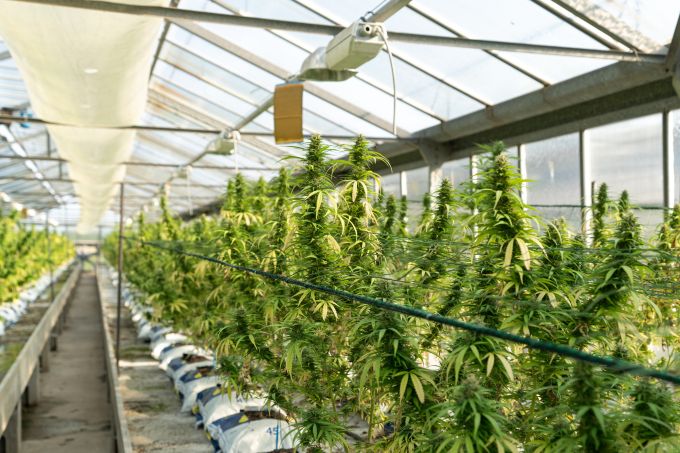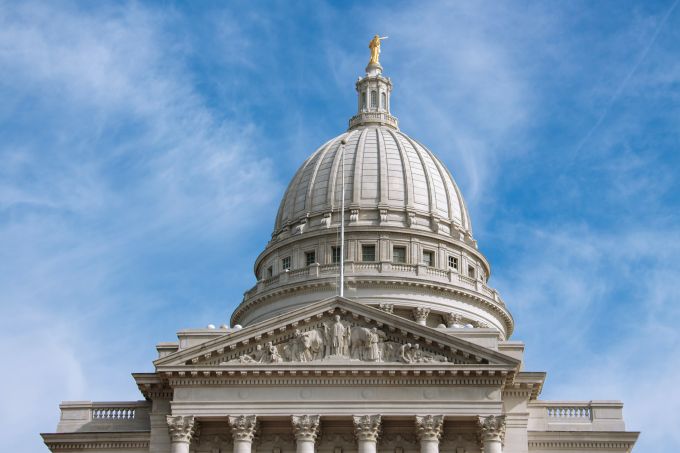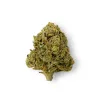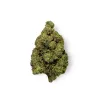Delta-9-tetrahydrocannabinol, or delta 9 THC, is among the most (if not the most) popular cannabis compounds in the world. With marijuana being federally illegal and also illegal in a plethora of states, however, many cannabis users don't know that there's a way to get legal delta 9 made from hemp instead of marijuana.
Ever since hemp and hemp-derived cannabinoids were federally legalized in the United States, many individual states have amended their own laws to reflect federal legislation. Some other states, however, have taken steps to ban or heavily restrict hemp-derived compounds including delta 9. But where does the Badger State stand? Is delta 9 legal in Wisconsin?
Is Delta 9 Legal in Wisconsin?
In order to understand delta 9 in Wisconsin, let's examine the Farm Bill, which made hemp and hemp products legal across the country in 2018. Popularly known as the Agriculture Improvement Act, it created a legal difference between hemp and marijuana. A cannabis plant containing less than 0.3% THC on a dry-weight basis is considered hemp, while any plant exceeding that limit is considered marijuana under the bill.
While the Farm Bill legalized hemp, marijuana's illegal status as a schedule I controlled substance remained. In a recent statement, the Biden administration indicated that it wishes to review the federal government's marijuana policy, including plans to pardon all federal offenses relating to simple marijuana possession, urging states to do the same, and reevaluating the plant's schedule I status. As of now, though, only hemp-derived cannabinoids like delta 9 are legal in the United States.
President Trump Signs $400 Billion Farm Bill | TIME
Despite the federal government's embrace of hemp and hemp-derived products, some states have banned or restricted hemp-derived cannabinoids. Is the Badger State one of these, or is delta 9 legal in Wisconsin?
According to section 94.55 of Wisconsin’s Statutes & Annotations, hemp products containing delta 9 can be legally purchased as long as they don't exceed THC concentrations of 0.3% on a dry weight basis. The state of Wisconsin defines hemp as “any part of that plant, including the seeds thereof and all derivatives, extracts, cannabinoids, isomers of hemp, acids, salts, and salts of isomers, whether growing or not, with a delta-9-tetrahydrocannabinol concentration of not more than 0.3 percent.”
In other words, delta 9, along with all the other compounds found in hemp, are legal in the state as long as they do not contain more than 0.3% THC on a dry-weight basis.
Can Delta 9 Be Shipped to Wisconsin?
Online retailers can ship delta 9 products to their customers in Wisconsin due to its legal status in the state. A number of delta 9 products are available in vape shops, convenience stores, and even gas stations across the Badger States, but whether they are safe and legal is another concern. Since the FDA does not regulate hemp-derived cannabinoids, it is up to you as a consumer to make an informed choice when choosing which company to buy them from. If you live anywhere in America's Dairyland, you can legally get delta 9 shipped right to your door. Shipping delta 9 products is better than getting them in person for many reasons, but let's go over a couple of the most important ones.
First and foremost, online retailers tend to be much more transparent about their ingredients and processes than local stores. This can be due to different reasons. For example, a vape shop may buy products from a manufacturer without doing background research on their production and extraction methods, while online retailers usually maintain full oversight of their products from the growing of hemp plants to packaging and delivery. Online, you can find all the information you need about a company, as well as reviews and ratings left by previous customers from all over the country, not just those in your area.
You also get more variety in an online store than in a physical vape or smoke shop, which makes sense considering the fact that shopping online doesn't limit you to a store's stock in one place. In a smoke shop, you’re limited to what they have in stock, meaning you can either choose whatever they have, keep looking for products in different stores, or go home with nothing. Online, you can browse through thousands of products ranging from edibles to vapes until you find exactly what you’re looking for, whether it be dosage, compound, or flavor. And the best part is you can research, choose, and purchase your product without even leaving your couch!

What Delta 9 Means in Wisconsin
Delta 9 may be legal in Wisconsin, but that doesn't mean that the Midwestern state accepts all kinds of cannabis. As a matter of fact, recreational marijuana remains illegal in the Badger State, and possession is punishable by steep fines and in some cases, even jail time.
Possession of marijuana is considered a misdemeanor in Wisconsin and is punishable by up to six months in prison, as well as a potential fine of $500. Subsequent offenses carry possible fines of up to $10,000 and up to 3.5 years of jail time.
In Milwaukee County, these punishments are reduced. First offense possession of 25 grams or less is punishable by $1 plus court fines. Subsequent offenses carry the same fines, but they can lead to state penalties, which can land you punishments more in line with the rest of the state's marijuana laws than those currently active in Milwaukee.
Even with Milwaukee's attempts at softening the penalties for recreational marijuana, the rest of the state remains pretty strict in its punishments, so the only truly legal and safe way to access cannabis is by using hemp-derived cannabinoids, which are legal to use and possess anywhere in the state. That said, not all hemp is made equal, and the most important aspect of using hemp-derived cannabinoids like delta 9 is knowing how to differentiate between low- and high-quality products.
Things to Look Out For When Buying Delta 9 in Wisconsin
Although it is legal to buy delta 9 in Wisconsin, not all of it is safe to use. Though hemp is known for its many natural benefits, including pain relief, anxiety management, and psychoactive effects, the extraction and production processes for hemp compounds can leave toxic residues. So, even though hemp-derived cannabinoids like delta 9 are a safe and natural way to reap the benefits of the plant, several factors should be considered when selecting what products to purchase.
You already know delta 9 products need to be made from hemp carrying less than 0.3% THC on a dry-weight basis for them to be legal in Wisconsin, but the type of hemp your products are made of is also important. Hemp is extremely absorbent, meaning it takes in both toxins and nutrients from its environment. If a grower uses herbicides, pesticides, or any other harmful chemicals, these could end up in your product, so be sure to do some research and pick a retailer whose cannabinoids come from organic, non-GMO hemp grown without chemical pest control methods.
Extracting cannabinoids from hemp isn't just a matter of wringing out the plants and collecting what drips. There are many ways to extract hemp compounds from the plant, and they all vary in degrees of safety and price. The safest and most effective method is CO2 extraction. Although it provides the best and most consistent results, it's also the most expensive, meaning that not all manufacturers choose to use it. When a company uses CO2 extraction, it's a good sign that they're committed to quality, safety, and consistency over making big profits by selling subpar products.
Some manufacturers may bleach their hemp extracts in order to make them appear safer, purer, and of higher quality. In reality, this process only makes the products incredibly dangerous for consumption. Natural hemp extracts are usually amber or pinkish in color, but never completely clear, so be sure to remember that a lighter color doesn't necessarily mean a product is of higher quality. Look for natural distillate that hasn’t been tampered with.
All extraction methods, even CO2 extractions, can result in dangerous chemicals. This is why third-party lab testing is the single most important thing to consider when buying a hemp-derived product. By subjecting their products to a third-party lab test, companies are able to measure the quality and safety of their cannabinoids and ensure they are free of contaminants or additives. Additionally, these tests examine the products for potency and accurate THC concentration readings.
Doing your own research never hurts. In this case, it's almost necessary in order to ensure your safety. Before buying cannabinoids from any given company, do some research online and see what other people are saying. Are customers satisfied or unsatisfied with their purchases? How does the company respond? If customers have complaints about quality, customer service, or any other aspect of a company, the way the company responds is very telling of how they might react to you in the future.

Wisconsin Cannabis Market: Medical Marijuana vs. Hemp-Derived Delta 9
Wisconsin does allow hemp-derived cannabinoids like delta 9 to be sold, purchased, and used, but the Badger State hasn’t seen any significant medical cannabis legislation yet. Although several bills have been introduced throughout the years, none of them have gone anywhere. Like a few other states, however, Wisconsin does allow CBD-only medical treatments. Let's dive a little deeper into Wisconsin's medical cannabis laws and what legal hemp-derived compounds could mean for residents of the state who could benefit from cannabis.
Wisconsin Medical Cannabis Laws
As we mentioned previously, Wisconsin has no significant medical marijuana program. It does, however, have a CBD-only medical cannabis law known as Lydia's Law. Assembly Bill 726, signed into law in 2014, exempts individuals with seizure disorders from criminal penalties for possessing CBD. It only applies if the CBD in question has no psychoactive properties and if it is approved by a physician. In 2017, the law was expanded by Act 4, which extended CBD oil access to patients with any medical condition, not just those with seizure disorders.
Lydia's Law permitted physicians and pharmacies to prescribe and dispense CBD products to patients with epilepsy as long as they had been approved by the FDA. The lawmakers in Wisconsin thought of everything. They also included a section stating that CBD products could also be used medicinally if CBD was rescheduled under the Controlled Substances Act of the United States, which happened a few years later under the Farm Bill of 2018.
Even though Wisconsin has no medical marijuana other than some low-THC CBD, it stands alone in a sea of states that are much more accepting of cannabis. Michigan and Illinois, two of its neighbors, have already fully legalized recreational weed, while Minnesota and Iowa, the state's two other neighbors, have their own medical cannabis programs. So, Wisconsin is the only state in its hood that has fallen behind on cannabis legislation.
Year after year, medical cannabis, decriminalization efforts, and full legalization bills have been defeated in Wisconsin. In 2022, the legislature adjourned its session without even holding hearings for any proposed legislation related to cannabis, but a post-session hearing was held on a medical cannabis bill in April of that year. With the session adjourned, however, the bill cannot move forward just yet.
Wisconsin voters, on the other hand, clearly and vocally approve of some type of cannabis accessibility legislation in the state. In 2018, over a million voters approved advisory questions on their ballots regarding more humane cannabis legislation. Every single measure was voter-approved. Between 67-89% of voters want medical cannabis laws, while 60-76% want adult-use cannabis laws. In 2022, polls showed almost the same amount of support for these cannabis-related efforts. So, it seems that the Wisconsin Assembly is completely out of sync with its voters, but will they continue to ignore the wants of the people, or is cannabis legislation closer than Wisconsin thinks?
Medical Cannabis vs. Hemp-Derived Delta 9 in Wisconsin
With even deep red states like Alabama and Mississippi enacting their own effective medical cannabis programs, America's Dairyland is an anomaly in the country. The discrepancies between what voters want and what lawmakers do couldn't be clearer, so, for the sake of Wisconsinites, we hope that medical cannabis comes to the Badger State in the near future.
Meanwhile, Badger State residents can find the comforts and benefits of cannabis in hemp-derived products, which are fully legal to buy, possess, and use in the state. It's true that delta 9 derived from hemp and delta 9 derived from marijuana are two completely different things legally, but scientifically, they're virtually identical. Although they come from different plants, the compounds themselves are chemically identical. The only difference is that when a delta 9 product contains 0.3% THC or less it's considered hemp, while any more than that is considered marijuana.

Is Delta 9 Legal in Wisconsin? Final Thoughts
So, is delta 9 legal in Wisconsin? Absolutely. As long as it is derived from hemp and carries no more than 0.3% THC on a dry weight basis, delta 9 products are legal to sell, purchase, and use in the Badger State. And thank the heavens for that! Without recreational or significant medical cannabis legislation, using hemp-derived cannabinoids like delta 9 is the only way for residents of America's Dairyland to reap the buzzy and beneficial properties of the cannabis plant.
But remember, not all delta 9 is created equal, so be sure to do your research before going off and buying hemp from just any gas station. Always be aware of how a company makes its products, what customers are saying, and whether or not they offer third-party lab testing results. Blissful buzzing!









